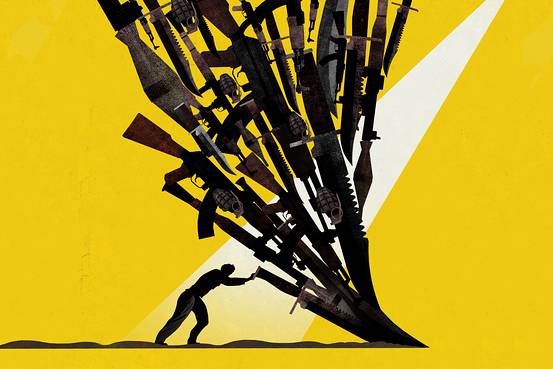Religion, throughout history, has been a double-edged sword. On one hand, it has been a fountain of solace, serving as a beacon of light and moral guidance for countless individuals. Conversely, it has exhibited a propensity for inciting violence and fostering division. The Bahá’í teachings, however, emerge as a distinctive perspective in this dialogue, offering profound insights into the inherent nature of religious violence, its roots, and the path towards harmonious coexistence.
To comprehend the Bahá’í stance on the intersection of religion and violence, it is imperative to first consider the fundamental tenets of this faith. The Bahá’í teachings advocate for the oneness of humanity, emphasizing that all people, irrespective of their cultural, religious, or ethnic backgrounds, are interconnected. This principle posits that the distinctions which often incite violence—such as nationalism, sectarianism, and bigotry—are superficial constructs lacking any inherent legitimacy.
At the heart of the Bahá’í worldview is the assertion that true religion must be in harmony with science and reason. Violence perpetuated in the name of religion often emerges from a profound misunderstanding of spiritual principles. The Bahá’í writings assert that if adherents genuinely embody the teachings of their faith, they would invariably cultivate a spirit of unity and peace, contradicting violent impulses.
Bahá’u’lláh, the founder of the Bahá’í Faith, expounded on the critical notion that divine teaching is fundamentally progressive and responsive to the evolving conditions of humanity. Historical interpretations often grasped religious tenets rigidly, mistakenly allowing for the exclusion of empathy and understanding. This rigidity is a prime contributor to the violent manifestations of religiosity we witness today.
It is essential to address the socio-political dimensions that can exacerbate religious conflict. The intertwining of religion with power structures frequently results in coercive measures and sectarian violence. Consequently, individuals may become embroiled in zealous attachments to religious ideologies, which can incite militaristic fervor. From a Bahá’í vantage, such conflations represent a degradation of spiritual teachings; when faith becomes politicized, the resultant chaos often overshadows the inherent messages of peace and compassion.
Moreover, one must consider the role of interpretation in the evolution of religious violence. Religions are not static; they are dynamic systems shaped by human culture, experience, and historical context. Thus, interpretations that justify violence often stem from patriarchal or misogynistic traditions, cultural remnants of prior eras. Bahá’í teachings advocate for a return to the essence of religious principles. It implores followers to align their spiritual practice with ethics that promote social justice, inclusivity, and love.
Perhaps the most striking aspect of Bahá’í philosophy is its insistence on eliminating prejudice, which is a fundamental precursor to conflict. Prejudice takes many forms: racial, religious, and nationalistic biases often fuel animus, leading to tragic outcomes. Bahá’ís assert that eradication of prejudice is not mere idealism; it is a moral imperative mandated by our collective humanity. True spiritual practice acknowledges our shared dignity and worth, urging us to prioritize understanding over enmity.
In examining historical precedents, one can observe that the greatest human tragedies often occurred in the absence of effective communication and mutual respect. The Bahá’í approach advocates for dialogue and education as conduits for peace. The active engagement between individuals of diverse beliefs is paramount to overcoming ignorance and fostering understanding. Educational initiatives, particularly those centered on the transformative power of love and the principles of justice, can assuage fear-driven hostility.
Additionally, the Bahá’í teachings address the individual obligation to cultivate an inner landscape rife with virtues such as patience, forgiveness, and compassion. This internalization of spiritual principles enables one to respond to conflict not with violence, but with thoughtful reflection and dialogue. When individuals prioritize the cultivation of their own character, they become powerful agents of change in their communities, effectively countering the cycles of violence that so often plague societies.
Critically, the Bahá’í teachings invite followers to envision a world united in its spiritual pursuits—a world wherein the conglomeration of diverse beliefs does not result in conflict, but rather enriches the human experience. As humanity evolves, there is a call for an unprecedented level of spiritual maturity that transcends old paradigms of division. Bahá’í philosophy urges individuals to be vigilant against the allure of indignation, advocating for love as the transformative force capable of dismantling entrenched divisions.
In summation, while the wounds of religious violence may appear deep and complex, the teachings of Bahá’u’lláh offer a compelling framework for navigating this intricate landscape. By fostering unity, eradicating prejudice, and cultivating personal virtues, individuals can break the chains of historical grievances and embark on a path toward peace. The exploration of the interstices of religion and violence is not merely an academic endeavor; it is an urgent call to action for today’s society as it seeks to forge a future grounded in compassion and understanding.
